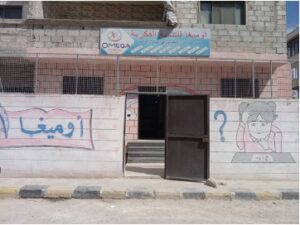“We feel, therefore we act.”
It sounds noble. Emotional. Human.
But is it effective?
The Scroll That Stops Us
We all scroll through our phones without thinking, until we land on a photo that stops us. A mother holding her child in a dusty camp. Families walking through broken streets with everything they own. A child stepping out of a destroyed classroom, eyes full of fear and wonder. These images hit hard. That’s the power of emotion: it grabs us and makes us care. It’s built into us, pushing us to act even before we fully understand why. Research shows that most of our decisions are driven by emotion. It keeps us alert. It keeps us human.
Feelings alone, strong as they are, can’t guide us all the way. They’re the spark, not the map. This matters even more in crises. Syria is a clear example of why emotions without facts can take us off track. Yes, the images are powerful. Yes, the stories move us, but caring isn’t enough to fix deep problems. Emotion needs to be backed by clear plans. Otherwise, good intentions can lead to poor results.
Today, more than 122 million people around the world have been forced from their homes. Of those, 13.5 million are Syrian. Inside Syria, 7.4 million people are still away from home, and another 674,000 had to leave just since November 2024. Outside Syria, 6.1 million refugees are living in places like Turkey, Lebanon, and Germany.
These aren’t just numbers. They’re families. Kids who haven’t been to school in years. They are now income generators rather than future makers. Older people waiting in crowded clinics. Parents choosing between food or medicine. While our first instinct is to help, kindness alone can’t meet needs this big.
Since December, over 500,000 Syrians have come back from abroad, and 1.4 million people inside Syria have returned to their towns. That sounds hopeful. It is, but under the surface, problems are growing. The UN says these returns might not last. Why? the basics people need just aren’t there. Things like electricity, schools, and hospitals are still broken or gone. Going back home often means stepping into hardship all over again.
This is where emotions hand over to facts. Data helps us see clearly. It shows where people are returning, what’s missing, and where to focus our help.
Today, 9 out of 10 Syrians live in poverty and struggle to afford food. Half the country’s roads, water systems, and buildings are damaged or gone. Three out of four people rely on aid to survive. That’s a huge jump from just 5% at the start of the conflict. Many businesses have shut down or moved away. Nearly half of Syria’s people are still not home.
Here’s where emotion can sometimes blur the full picture. Because emotions are temporary, they can lead us to jump into quick, visible solutions, like focusing on activities that feel instantly rewarding, while missing deeper, structural needs.
During one of our visits to Al-Qadam, a neighborhood in Damascus, we spent time in a center supporting Syrian children with learning difficulties. It washeartwarming to see the joy during psychosocial activities, and many visitors felt deeply moved.
After talking with the team, we realized the center had much larger priorities. The building wasn’t accessible to children with disabilities. Power was unreliable. Solar panels were needed. The classrooms lacked proper design and materials. A full development-based proposal was already in place, waiting to be supported.
This was a clear reminder: emotion can open doors, but without clear data and planning, it risks misrepresenting what matters most.

Syria’s 2025 support plan needs $575 million. So far, only $71 million has been raised. Without more, the progress we see could fall apart. Families might have to leave again. Kids could miss school again. Communities might not make it.
We need to ask: Are we helping in ways that last? Or are we chasing feel-good moments that fade fast? Are we seeing the full picture, beyond just the emotional stories? if we don’t, we could waste money, lose trust, and let people down.
There’s a better way. When emotion meets solid facts, real change happens. Donations don’t just build shelters. They build futures. Good policies don’t just react. They protect. Community programs don’t just reach people. They lift them up.
In Syria, the will to rebuild is strong. Now it’s up to us to choose the next steps.
Let’s keep feeling. Let’s feel smarter and deeper. Let’s listen to the facts as much as our hearts. Let’s make plans like lives depend on it, because they do.
Let our care live not just in our hearts, but in our hands.


